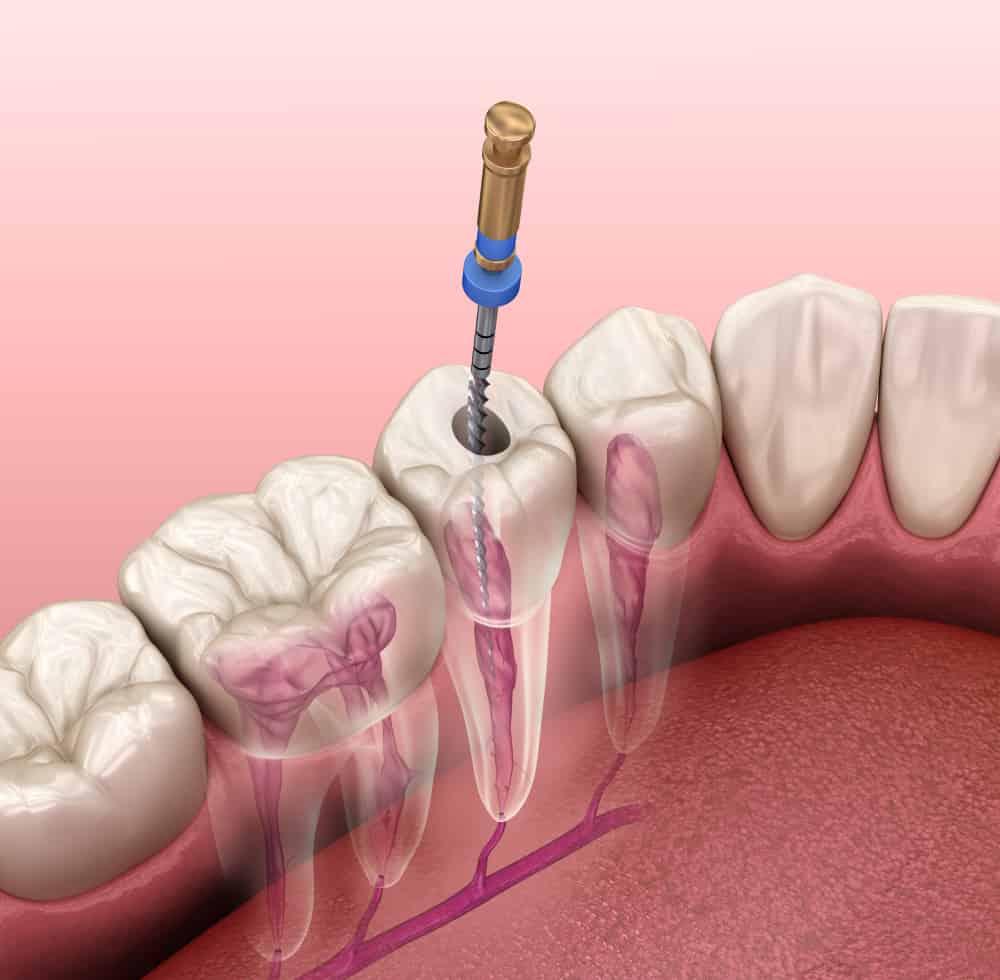These days, when we talk about dentistry, every procedure has become easier, quicker, and more comfortable compared to the past. Still, a root canal is the one that worries many people. Although the dentist indeed goes for a root canal in a serious situation, people don’t have to fear. The main idea of root canal treatment is not to cause pain but to save your infected tooth and give you better oral health.
If you are scheduled to visit a dentist for a root canal treatment, you must understand how effectively restoring your tooth is. Here’s what you must know about root canal symptoms and how to prevent them.
What is a Root Canal?
It is a common treatment for saving and repairing an infected or decayed tooth. The root canal is performed by a trained and experienced dentist specialising in treating injuries and diseases to the soft pulp inside the tooth. The pulp has nerves and blood vessels so an infection can cause pain.
After removing the dental pulp, the dentist cleans and seals the tooth with a special antibiotic to properly handle the infection. The procedure is done with a local anesthetic, meaning you will not feel any pain. Regarding the procedure length, a root canal is similar to a dental filling.
Signs of a Root Canal
- Continuous Toothache
A toothache is one of the main root canal symptoms that push people to seek dental care. Root canal infection can bring severe pain, intensifying when pressure is placed on the tooth or we bite down. In addition to that, we may also experience sensitivity when having hot or cold foods and drinks.
- Dental Abscess
Dental abscesses may occur from dying pulp material, and bacteria make deep pockets of puss around the tooth’s root. It can cause unease and be visible through a red bump on the gum. There is also a possibility of foul-smelling liquid starting to seep out of the abscess.
- Darkening of Tooth
When our tooth’s inner layer gets infected, it appears yellow or brown. When the tooth infection starts to reach the pulp tissues, the tooth changes to dark brown colour. That is why dentists use dental crowns after root canal treatment, as it improves the tooth’s appearance.
- Bad Breath
You may have chronic bad breath if you suffer from a root canal infection. If you find it persistent despite brushing and flossing, you may have an infection. Bacteria-causing root canals give off an odour, and it can cause bad breath and a bitter taste in the mouth.
How to Prevent Root Canal?
We all know that some of the main root canal symptoms are the nerve of a tooth and the pulp becoming infected and inflamed due to tooth decay. Other than that, repeated dental procedures and large fillings are also some of its causes. The following are a few main steps that you can take to prevent root canal infection in the future.
- The most important thing for you is to brush at least twice a day.
- Many people ignore dental flossing, but flossing at least once a day can prevent a root canal.
- Try to avoid sports-related injuries by wearing a mouth guard.
- The best way to prevent root canals is to visit your dentist regularly.
Restorative Dental Care in Lower Plenty, VIC, Australia
If you are experiencing any root canal symptoms, you are suffering from an urgent dental problem that needs immediate treatment to prevent further complications. We offer top-notch restorative, preventive, and cosmetic dental care at Majestic Smiles. Our team of trained and experienced dentists takes pride in offering you a healthy and beautiful smile. With advanced tools, technology, and procedures, Majestic Smiles aims to minimise your root canal pain.
Contact us today to schedule an appointment!
